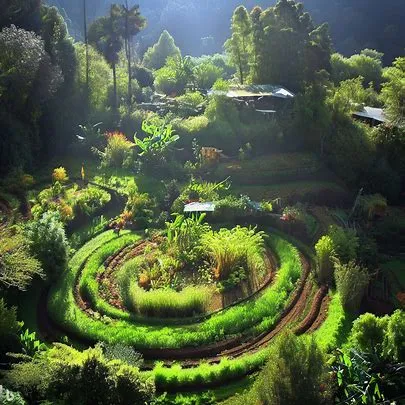
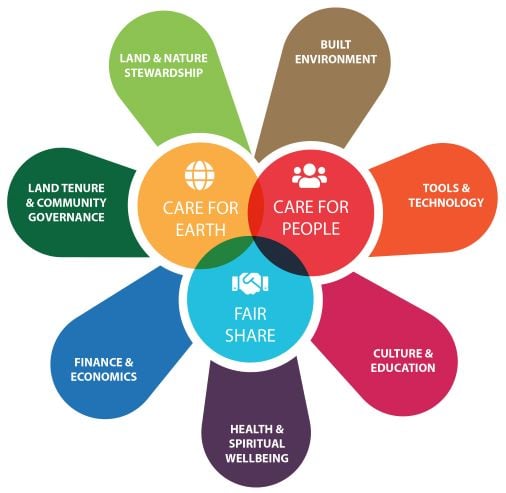
Permaculture design is defined as an ethical design science, so what are those ethics? 1) Earth Care
2) People Care 3) Fair share and return of surplus, setting limits. As a permaculture designer you should design systems that benefit the earth, look after people and any extra should be shared and returned to the system. The user should pay.
The permaculture flower also gives us different directions that Permaculture can take you, always based on the three core ethics.
Permaculture is a sustainable design system that integrates ecological principles with human ingenuity to create harmonious and regenerative environments. Rooted in the philosophy of working with nature, permaculture aims to develop self-sufficient and resilient ecosystems that provide for human needs while preserving and restoring the natural world. By observing and understanding the relationships within a landscape, permaculture practitioners design gardens, farms, and communities that maximize resource efficiency, minimize waste, and promote biodiversity. Through thoughtful planning and conscious decision-making, permaculture offers a transformative approach to sustainable living, fostering a deeper connection between humans and the environment we inhabit. Embrace permaculture to cultivate abundance, nurture the planet, and build a thriving future for all.
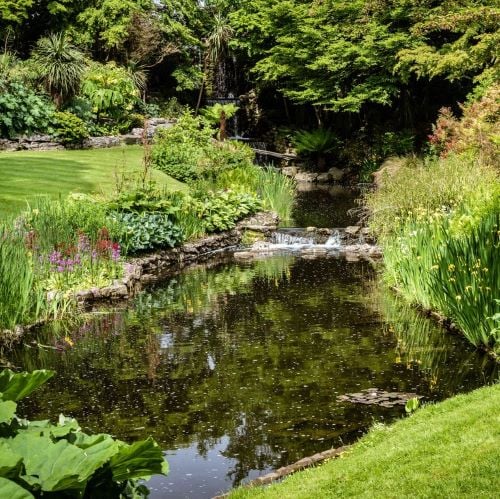
Permaculture gardening is a sustainable gardening approach that focuses on designing and creating systems that mimic natural ecosystems. It involves using techniques such as planting in guilds, composting, and incorporating plants that have multiple uses, such as for food, medicine, and habitat for beneficial insects. Permaculture gardening also emphasizes using resources efficiently and minimizing waste.
A permaculture garden aims to feed the owners with a good variety of nutritious healthy organic fruit and vegetables. There is no need to use chemicals such as pesticides, if you have designed habitats where pest predators can live. There is no need to use artificial fertiliser if you can make your own amazing soil with composts. It is knowing how each element works and then placing them in a way that each element interacts with another in a beneficial way providing for our needs.
Check out https://www.permaculturenews.org/ for great Permaculture Design news articles.
Permaculture farming is a holistic and sustainable approach to agriculture that seeks to create self-sufficient and resilient ecosystems, mimicking natural patterns and processes. By integrating principles from ecology, biology, and design, permaculture farmers aim to harmonize with the environment, rather than exploit it. This method emphasizes the cultivation of diverse and interdependent plant and animal species, fostering a balanced and regenerative system. Utilizing techniques like companion planting, mulching, and rainwater harvesting, permaculture farming aims to minimize waste, conserve resources, and eliminate the need for harmful chemicals. The ultimate goal is to create abundant and organic food sources while nurturing the land for future generations.
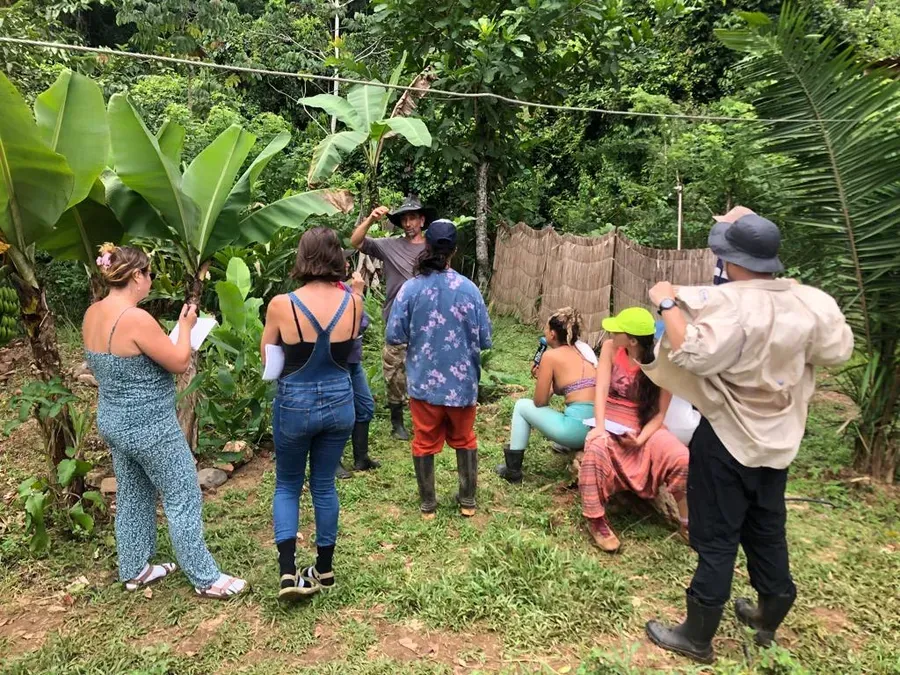
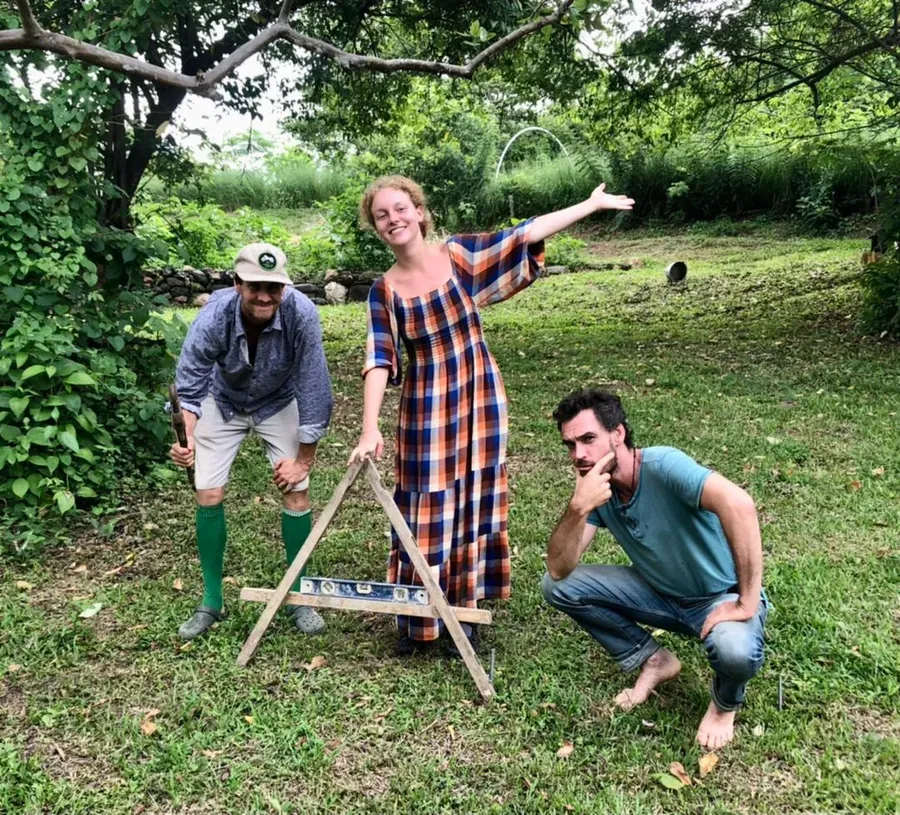
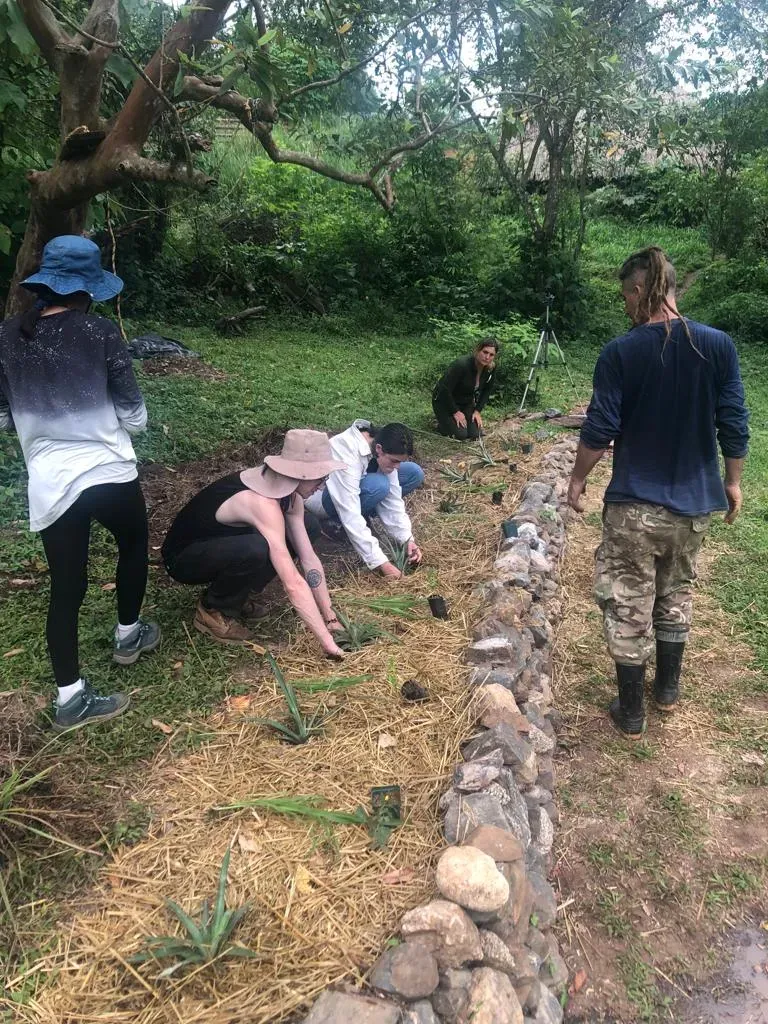
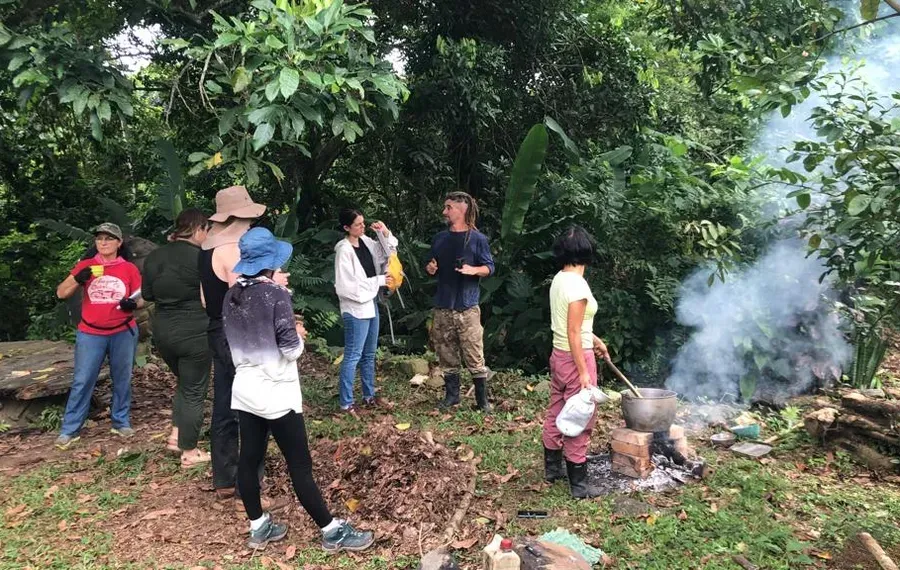
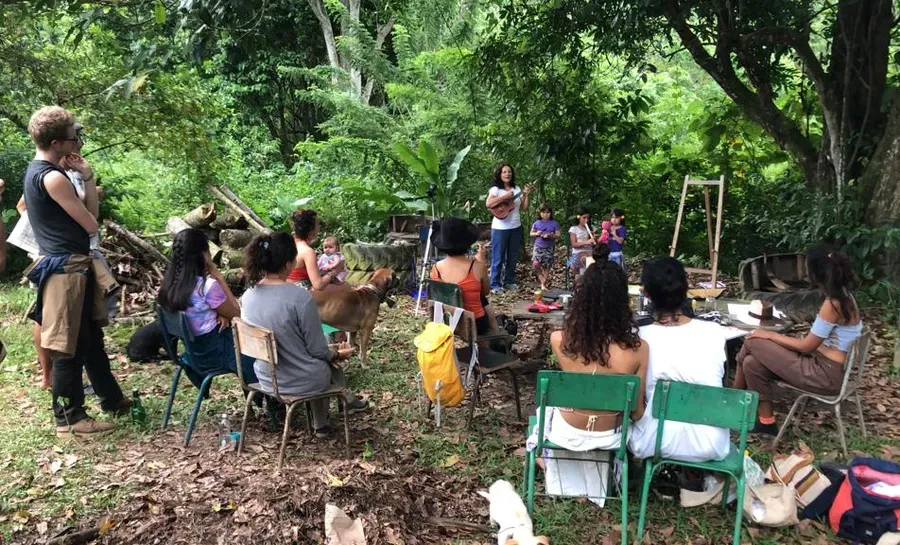
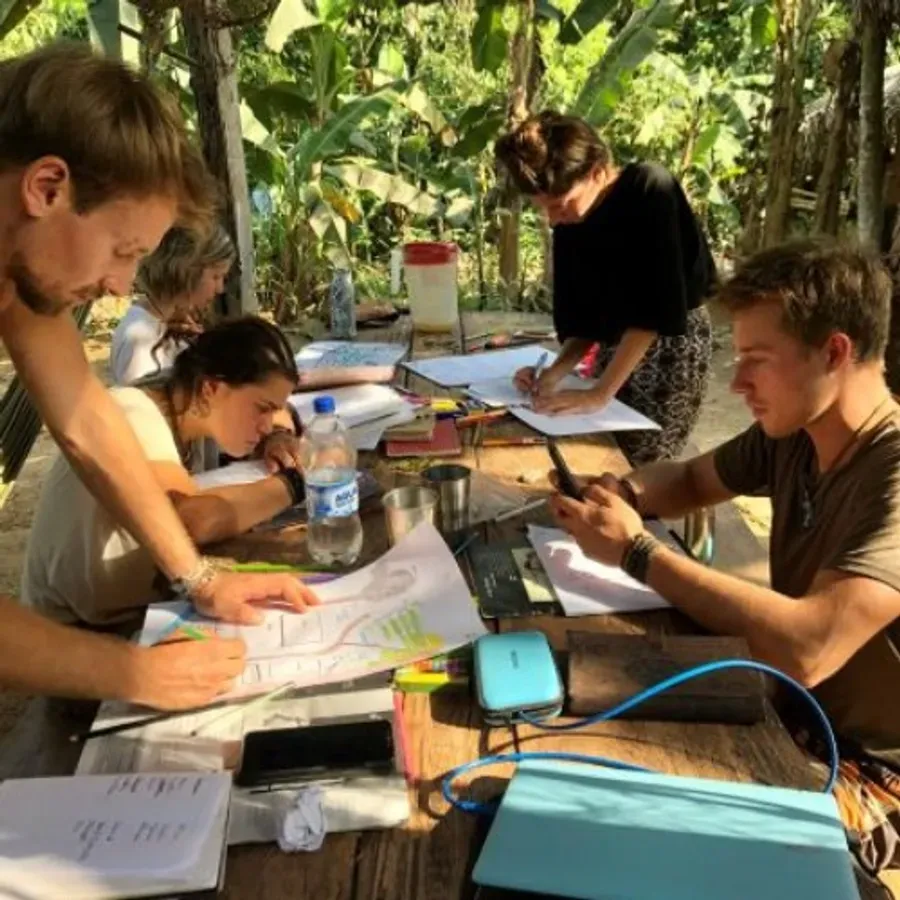
If you're passionate about sustainable living and seeking to deepen your understanding of regenerative agriculture, a PDC is the perfect opportunity for you. This comprehensive and transformative course will equip you with the knowledge and skills to create resilient and harmonious systems that work in harmony with nature. Whether you're a seasoned farmer, a budding gardener, or simply an eco-conscious individual, our PDC will empower you to design and implement regenerative landscapes that yield organic abundance while healing the Earth.
What you'll learn:
Permaculture Ethics and Principles: Understand the core ethics of permaculture, such as earth care, people care, and fair share, and learn how to apply these principles to your designs.
Design Methodologies: Explore various design techniques and methodologies, including zoning, sector analysis, and pattern recognition, to create functional and efficient permaculture systems.
Sustainable Water Management: Discover techniques for rainwater harvesting, swales, ponds, and greywater systems to efficiently manage water resources on your land.
Soil Regeneration: Learn about the importance of healthy soil and explore methods for composting, mulching, and building fertile soil to support thriving plant life.
Agroforestry and Food Forests: Explore the art of agroforestry and food forest design, incorporating a diverse range of trees, shrubs, and plants to create resilient and productive ecosystems.
Natural Building Techniques: Discover sustainable construction methods using natural and locally sourced materials, promoting energy efficiency and low environmental impact.
Renewable Energy Integration: Learn how to incorporate renewable energy solutions like solar panels, wind turbines, and bioenergy into your designs, reducing reliance on non-renewable resources.
Community Engagement: Understand the importance of community involvement and cooperation in permaculture projects, fostering social cohesion and shared benefits.
Expected outcomes:
Obtain a Permaculture Design Certificate: Receive a globally recognized certificate upon completion, affirming your proficiency in permaculture design principles and practices.
Design and Implement Your Permaculture Project: Gain the confidence and expertise to plan and create your permaculture systems, tailored to your specific site and climate.
Join a Thriving Network: Become part of a passionate and supportive community of permaculture enthusiasts, connecting with like-minded individuals and sharing knowledge and experiences.
Foster Sustainable Lifestyles: Empower yourself and others to embrace sustainable living, making positive contributions to environmental conservation and ecological regeneration.
Create Positive Impact: Make a tangible difference by promoting biodiversity, conserving resources, and mitigating climate change through the practical application of permaculture principles.
Embark on this life-changing journey with us and be inspired to cultivate a future filled with abundance and harmony through permaculture!
There are several types of permaculture courses available, including:
1. Introduction to permaculture: These courses provide a broad overview of permaculture principles and practices and are typically suitable for beginners.
2. Permaculture design course (PDC): These courses are more comprehensive and are typically 2-3 weeks in duration. They provide in-depth training on permaculture principles and design, as well as hands-on experience with various permaculture techniques.
3. Advanced permaculture courses: These courses are designed for those who have completed a PDC and want to further develop their skills and knowledge in specific areas of permaculture, such as food forests, aquaculture, or earthworks.
4. Online permaculture courses: These courses are delivered via the internet and typically involve a combination of self-paced study, webinars, and online workshops.
5. Short courses and workshops: These courses are typically focused on specific permaculture techniques or principles and are typically 1-2 days in duration.
Permaculture is a holistic design approach that focuses on creating sustainable, self-sufficient systems that mimic the natural patterns and relationships found in ecosystems. It incorporates principles such as working with nature, using local resources, and promoting diversity and resilience. Agriculture, on the other hand, is the practice of cultivating crops and raising livestock for human use. It often involves the use of large-scale, monoculture farming methods and relies heavily on chemicals and other inputs. Permaculture seeks to minimize the negative impacts of agriculture and create sustainable, regenerative systems.
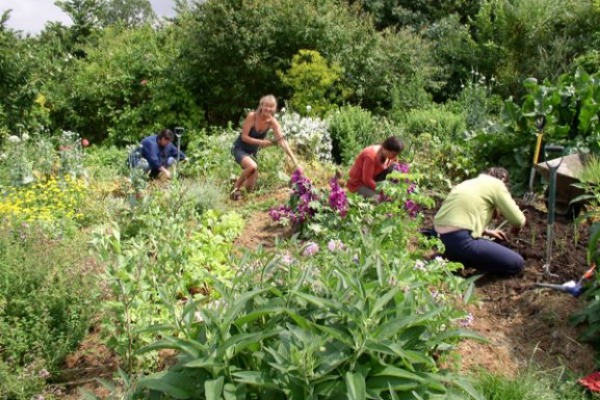
© Love Grows (Generation Regeneration) 2022